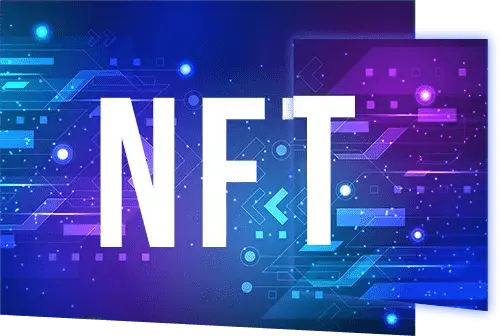- Services
- Hire Developer
- Our Products
- Insights
- Our Company
Web3 Development For E-Commerce Business

In today's rapidly evolving digital landscape, staying ahead of the curve is crucial for any e-commerce business. With the advent of Web3 development, a new era of internet technology has emerged, presenting exciting opportunities and transformative potential for the e-commerce industry. According to Statista, Asia has the highest revenue in the e-commerce business, at 1.8 trillion US dollars. America is close behind with 1 trillion US dollars, while Africa trails the ranking with 33.95 billion US dollars, resulting in a 1.8 trillion US dollar gap to the ranking leader, Asia.
In this article, we delve into the intricacies of Web 3 and explore how its integration can revolutionize online businesses, enabling them to thrive in the ever-evolving digital realm.
Understanding Web3 Development
Web3 development represents the next evolutionary step in the internet's progression, going beyond the traditional Web 2.0 framework. It encompasses a decentralized, user-centric approach, leveraging blockchain technology to create a more secure, transparent, and immersive online experience. With Web3, the power shifts from centralized authorities to individuals, enabling peer-to-peer interactions, self-sovereign identity, anddecentralized applications(dApps).
Applications of Web3 Development In the E-Commerce Industry
1. Enhanced Security and Trust
One of the fundamental advantages of Web3 development for e-commerce is enhanced security and trust. Traditional online business models often face security vulnerabilities and trust issues, which can hinder customer confidence and impede growth. Web3, powered by blockchain's cryptographic protocols, offers a robust security framework, ensuring data integrity and protecting against fraudulent activities. This heightened security fosters trust between businesses and their customers, paving the way for seamless transactions and improved user experiences.
2. Empowering User Control
Web3 development empowers users by giving them greater control over their online identities and data. Through decentralized identity solutions, individuals can own and manage their digital identities securely. E-commerce businesses leveraging Web3 can provide their customers with a more personalized experience while respecting their privacy, leading to stronger customer loyalty and engagement.
3. Seamless Cross-Border Transactions
International e-commerce often faces challenges related to cross-border transactions, including high fees, slow settlement times, and complex currency conversions.Web3 development, facilitated by smart contracts and cryptocurrencies, streamlines cross-border transactions by eliminating intermediaries and reducing transaction costs. This frictionless process benefits both businesses and customers, making global e-commerce more accessible and efficient.
4. Smart Contracts and Decentralized Marketplaces
Smart contracts, a cornerstone of Web3 development, automate and enforce agreements without relying on intermediaries. These self-executing contracts enable trustless interactions, ensuring that all parties fulfil their obligations transparently. E-commerce businesses can leverage smart contracts to streamline various processes, such as supply chain management, payment settlements, and dispute resolution. Additionally, decentralized marketplaces built on blockchain enable peer-to-peer transactions, removing the need for intermediaries and providing a fairer, more efficient trading environment.
5. Enhanced Customer Engagement and Loyalty
Web3 development fosters enhanced customer engagement and loyalty through gamification and tokenization. By integrating blockchain-based reward systems, e-commerce businesses can incentivize customer participation, feedback, and social sharing. These rewards, in the form of tokens or digital assets, provide a tangible value that customers can trade, increasing their sense of loyalty and encouraging continued interaction with the brand.
6. Immersive Shopping Experiences
The integration of Web3 technologies, such as virtual reality (VR) and augmented reality (AR), offers unparalleled immersive shopping experiences. Customers can visualize products in a virtual environment, try on virtual garments, or preview furniture in their homes using AR overlays. These technologies bridge the gap between online and offline shopping experiences, reducing customer uncertainty and increasing purchase confidence. As a result, e-commerce businesses that embrace Web3 can stand out from their competitors, attracting and retaining customers in a visually captivating manner.
Business Benefits of Web3 in the E-Commerce Industry
1. Decentralized Identity and Authentication:Web3 introduces decentralized identity systems, allowing users to have control over their data. E-commerce brands can leverage this feature to offer secure and privacy-enhanced authentication mechanisms. Users can manage their identities without relying on third-party intermediaries, reducing the risk of data breaches and improving user experience.
2. Tokenization and Loyalty Programs:Web3 enables the tokenization of assets, including loyalty points and rewards. E-commerce brands can create their tokens, which can be used as incentives, loyalty rewards, or as a means of exchange within their ecosystem. Tokenization enhances customer engagement, fosters brand loyalty, and provides new revenue streams by enabling users to trade or redeem tokens.
3. Access to Global Markets and Reduced Barriers:Web3 platforms operate on a global scale without geographical limitations. E-commerce brands can easily expand their reach to international markets, offering their products and services to a wider customer base. The decentralized nature of Web3 also reduces entry barriers, enabling smaller businesses and entrepreneurs to participate in the global e-commerce ecosystem.
4. User-Centric Data Control: Web3 shifts the control of data from centralized platforms to users themselves. E-commerce brands can empower customers by giving them ownership of their data and allowing them to selectively share it with trusted parties. This user-centric data control enhances privacy, reduces reliance on centralized data repositories, and fosters a more personalized and trustworthy customer experience.
5. Collaborative Ecosystems and Partnerships:Web3 facilitates collaboration and partnerships among different e-commerce brands and stakeholders. Through interoperable protocols and decentralized marketplaces, brands can form synergistic relationships, sharing resources, data, and customer insights. These collaborations can lead to new business opportunities, cross-promotions, and enhanced customer experiences.
Conclusion
Web3 development represents a paradigm shift for the e-commerce industry, offering a host of transformative benefits that can propel businesses to new heights. From enhanced security and trust to empowering user control, seamless cross-border transactions, smart contracts, decentralized marketplaces, enhanced customer engagement, and immersive shopping experiences, the possibilities are endless. By embracing Web3, e-commerce businesses can position themselves at the forefront of innovation, gaining a competitive edge in the digital marketplace.
 info@infograins.com
info@infograins.com





















